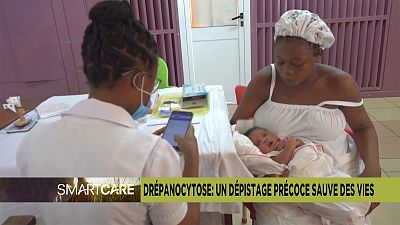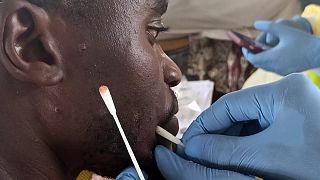Ghana
The sound of bundles of joy for parents, after months of waiting but for some, the celebration of the birth of a child never lasts long. Emotions shift at the sight of a problem, especially health disorders that will affect the little ones for their entire lives.
Thirty-six-year-old Agnes Wasai is a mother of three. Two of her children were diagnosed with sickle cell disease. She learned about their condition when the first child was five years old, and since then, life has never been the same.
The World Health Organization estimates that about 200,000 babies are born with sickle cell every year in Africa, that is 80 percent of the global figure. Unfortunately half of them die before the age of five.
Doctors say many can be helped if screening is done early. “If we diagnose sickle cell early in babies, we can start them on medication from as young as two months of age. Medicine they will take twice daily for up to five years.
“That will now protect them from the leading cause of death which is infection. But we have been slow in developing new born screening programmes” says Professor Kwaku Ohene-Frempong, the president of Sickle Cell Foundation of Ghana.
In Ghana, where records show 2 percent of all newborns have sickle cell disease, efforts are being put in increasing awareness of the illness that affects red blood cells.
Newborn screening and early diagnosis along with comprehensive care improve the survival rates for patients. Ghana now has 11 sickle cell treatment centers and baby screening facilities.
As the World Sickle Cell Day is marked on June 19th, emphasis is still on public knowledge about the disease, but to tackle it requires commitment and sustainable strategies. Public-private partnerships are key to ensuring the future of African children with sickle cell disease.














Go to video
Paraguayan town celebrates vibrant Kamba Ra'anga festival with masks, fire and tradition
Go to video
Evacuations begin: African citizens caught in Israel-Iran crossfire
01:47
Chinese city of Xuchang is world's biggest producer of wigs
01:15
U.S. considers adding more African countries to travel ban
Go to video
Ghana's former finance minister place on Interpol Red Notice list over corruption allegations
01:00
Renewed calls to end plastic pollution on World Environment Day